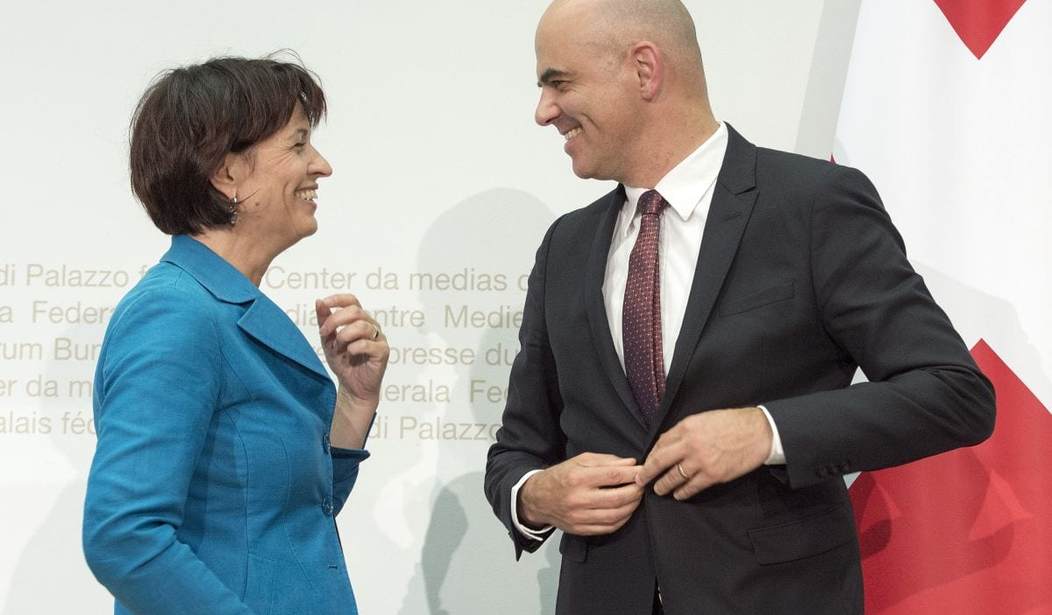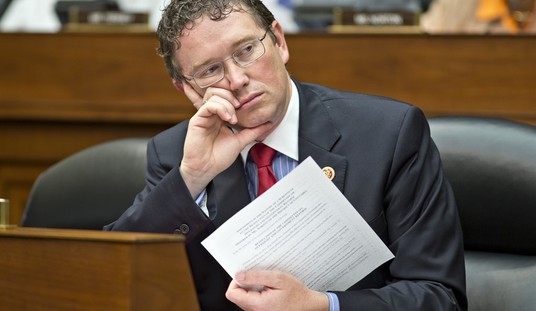An historic referendum was held in Switzerland today as it became the first country to ever put the question of a universal basic income (UBI) to a vote.
Apparently, the idea was even too much for one of the most generous social-welfare nations in the world. The measure was rejected by a 3-1 margin.
Supporters had said introducing a monthly income of 2,500 Swiss francs ($2,563) per adult and 625 francs per child under 18 no matter how much they work would promote human dignity and public service.
Opponents, including the government, said it would cost too much and weaken the economy.
Provisional final results showed 76.9 percent of voters opposed the bold social experiment launched by Basel cafe owner Daniel Haeni and allies in a vote under the Swiss system of direct democracy.
Haeni acknowledged defeat but claimed a moral victory.
“As a businessman I am a realist and had reckoned with 15 percent support, now it looks like more than 20 percent or maybe even 25 percent. I find that fabulous and sensational,” he told SRF.
“When I see the media interest, from abroad as well, then I say we are setting a trend.”
Conservative Switzerland is the first country to hold a national referendum on an unconditional basic income, but others including Finland are examining similar plans as societies ponder a world where robots replace humans in the workforce.
Olivier, a 26-year-old carpenter who works on construction sites and runs a small business designing and building furniture, said he voted “yes”.
For me it would be a great opportunity to put my focus on my passion and not go to work just for a living,” he said.
Champions of the plan portrayed a more automated future in a poster bigger than a soccer field asking “What would you do if your income was secure?” They had also marched as robots down Zurich’s high street and handed out free 10-franc notes.
“I voted ‘yes’ because money does not really have its place in this world, it is so arbitrary and linked to power games,” said Ronnie Lehmann, 37, who makes less than 4,000 francs a month as a bicycle mechanic. “But I’m not surprised the proposal got rejected, the world is not ready for it yet.”
A woman named Meleanie said she reluctantly voted “no”.
“I find that it is a real danger that once people just get their basic needs covered society doesn’t feel responsible any more to look after the ones who can’t really handle the situation on their own”, she said.
Supporters of the idea have yet to adequately address the “moral hazard” argument — that people on the margins of the labor force would take advantage of the basic income to quit their job or stop looking for work.
American Enterprise Institute fellow Charles Murray has been advocating for a UBI for more than a decade. He penned an op-ed for the Wall Street Journal that laid out how a UBI would work in the U.S.
In my version, every American citizen age 21 and older would get a $13,000 annual grant deposited electronically into a bank account in monthly installments. Three thousand dollars must be used for health insurance (a complicated provision I won’t try to explain here), leaving every adult with $10,000 in disposable annual income for the rest of their lives.
People can make up to $30,000 in earned income without losing a penny of the grant. After $30,000, a graduated surtax reimburses part of the grant, which would drop to $6,500 (but no lower) when an individual reaches $60,000 of earned income. Why should people making good incomes retain any part of the UBI? Because they will be losing Social Security and Medicare, and they need to be compensated.
Just how radical an idea is UBI?
The UBI is to be financed by getting rid of Social Security, Medicare, Medicaid, food stamps, Supplemental Security Income, housing subsidies, welfare for single women and every other kind of welfare and social-services program, as well as agricultural subsidies and corporate welfare. As of 2014, the annual cost of a UBI would have been about $200 billion cheaper than the current system. By 2020, it would be nearly a trillion dollars cheaper.
The savings would largely come from nearly eliminating the tens of billions of dollars spent on government management of all of those programs. Tens of thousands of bureaucrats wouldn’t be needed anymore.
But what about the moral hazard question?
Finally, an acknowledgment: Yes, some people will idle away their lives under my UBI plan. But that is already a problem. As of 2015, the Current Population Survey tells us that 18% of unmarried males and 23% of unmarried women ages 25 through 54—people of prime working age—weren’t even in the labor force. Just about all of them were already living off other people’s money. The question isn’t whether a UBI will discourage work, but whether it will make the existing problem significantly worse.
The robot revolution is coming and it isn’t only fast-food workers whose jobs are at risk:
An Organization for Economic Cooperation and Development study concluded that 9% of American jobs are at risk. Two Oxford scholars estimate that as many as 47% of American jobs are at risk. Even the optimistic scenario portends a serious problem. Whatever the case, it will need to be possible, within a few decades, for a life well lived in the U.S. not to involve a job as traditionally defined. A UBI will be an essential part of the transition to that unprecedented world.
There will no doubt be efforts to limit automation at first. But that’s not a longterm solution to the problem of disappearing jobs — especially when thinking about the huge number of job losses being projected. It would only make us less competitive and lead to a lower standard of living anyway.
I don’t think a UBI is an answer to automation. But tens of millions of more Americans getting housing assistance, food stamps, government-paid health insurance, and other social welfare benefits would be unsustainable. It behooves us to come up with a better solution than just advising people to “get a job” when none are to be had.










Join the conversation as a VIP Member